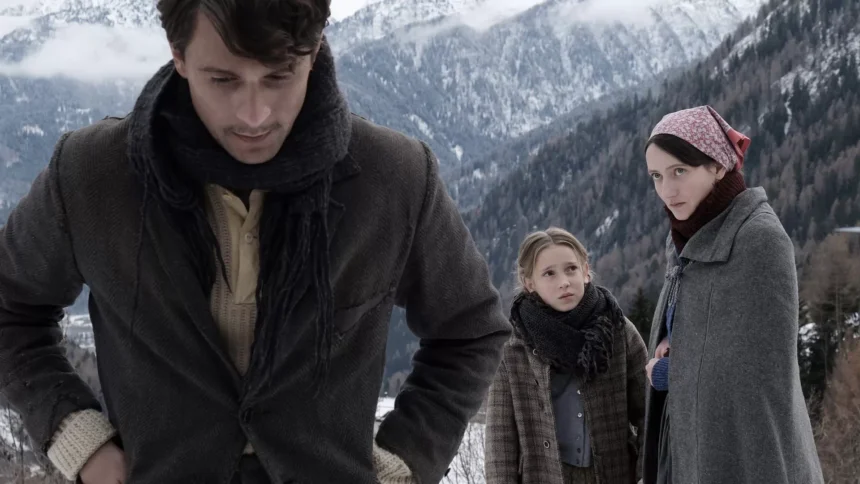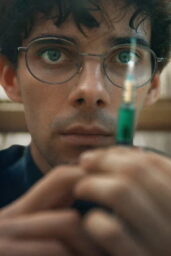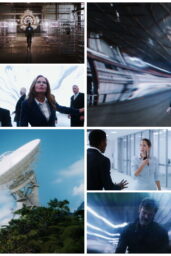Step into the snow-dusted peaks of the Italian Alps with Vermiglio, the latest cinematic masterpiece by acclaimed filmmaker Maura Delpero. Premiering to critical acclaim at the 2024 Venice Film Festival and winning the prestigious Silver Lion Grand Jury Prize, this film blends neo-realist storytelling with a deeply personal narrative rooted in family, love, and survival during the closing days of World War II. Now set for a US release this holiday season, Vermiglio promises to enchant audiences with its stunning cinematography and evocative performances.
A Story Suspended in Time
Set in the titular village of Vermiglio in 1944, the film chronicles the dramatic changes brought upon a family by the arrival of Pietro (Giuseppe De Domenico), a Sicilian soldier who has deserted the army. Seeking refuge, Pietro finds himself entangled in a poignant romance with Lucia (Martina Scrinzi), the eldest daughter of a local teacher. Their connection sets off a series of transformative events, unraveling secrets and altering the destinies of everyone in the village.
Delpero, drawing inspiration from her own family history, crafts a story that feels both personal and universal. Her approach evokes the spirit of Italian neo-realism, yet she delivers a fresh perspective through the lens of Lucia's experiences. This choice imbues the narrative with a timeless quality, resonating with modern viewers while paying homage to cinematic traditions.
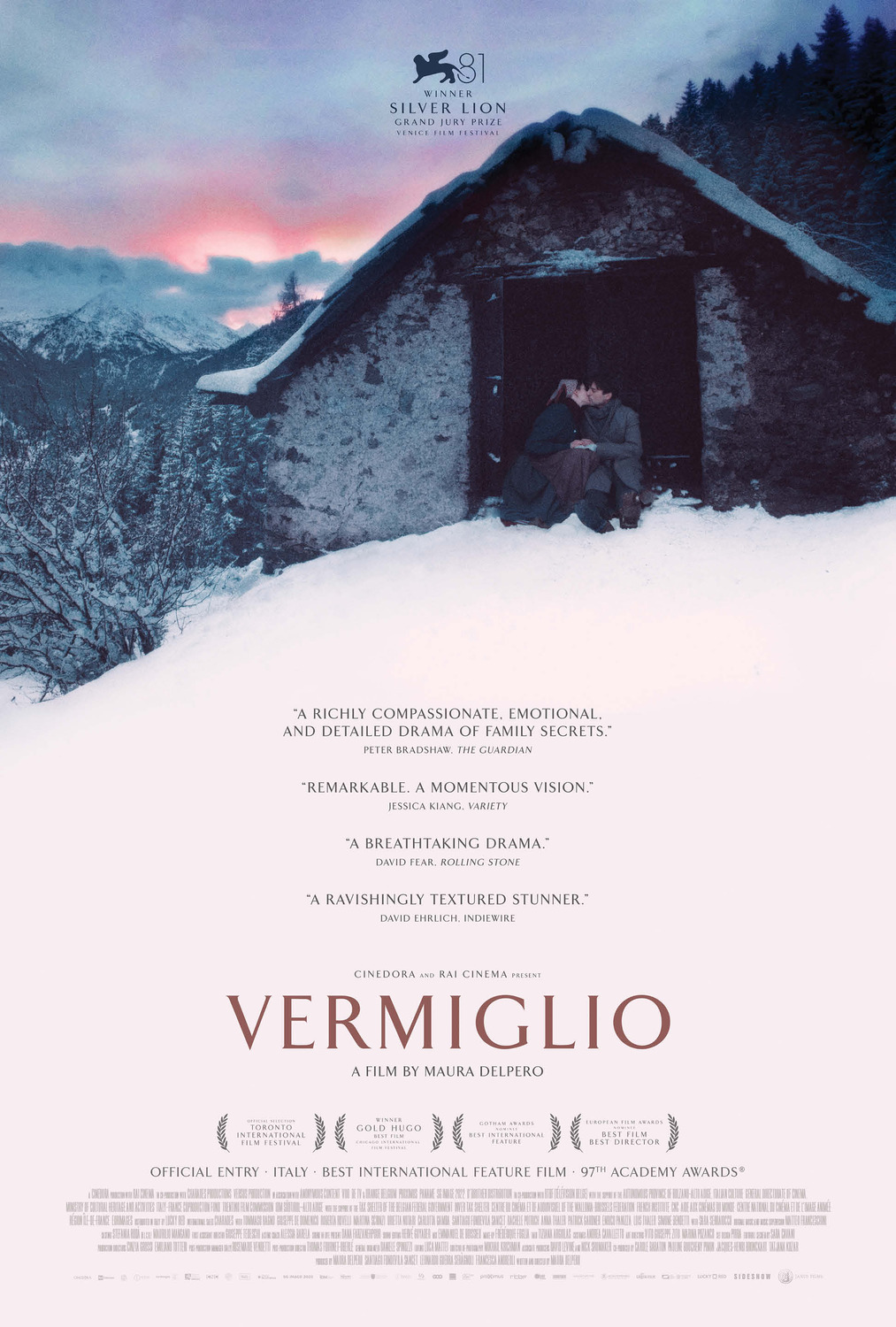
The Visual Splendor of the Alps
The breathtaking cinematography of Vermiglio is one of its standout elements. Shot entirely on location, the film captures the sublime beauty of the Alps, transitioning from the stark chill of winter to the hopeful bloom of spring. Delpero's use of natural light enhances the authenticity, immersing viewers in the harsh yet awe-inspiring landscape.
This painterly approach not only serves as a backdrop but also mirrors the emotional journey of the characters. The visuals are as much a part of the storytelling as the dialogue, enhancing the tension and beauty of the unfolding drama.
Cast and Production
The cast delivers powerful performances that ground the film's themes of love, resilience, and change. Giuseppe De Domenico shines as Pietro, portraying the complexities of a man grappling with guilt, fear, and love. Martina Scrinzi's Lucia is equally compelling, capturing the spirit of a woman torn between tradition and her burgeoning independence.
The film was produced by Francesca Andreoli, Maura Delpero, Santiago Fondevila, and Leonardo Guerra Seràgnoli. The creative team's commitment to authenticity and emotional depth elevates Vermiglio to a must-watch cinematic experience.
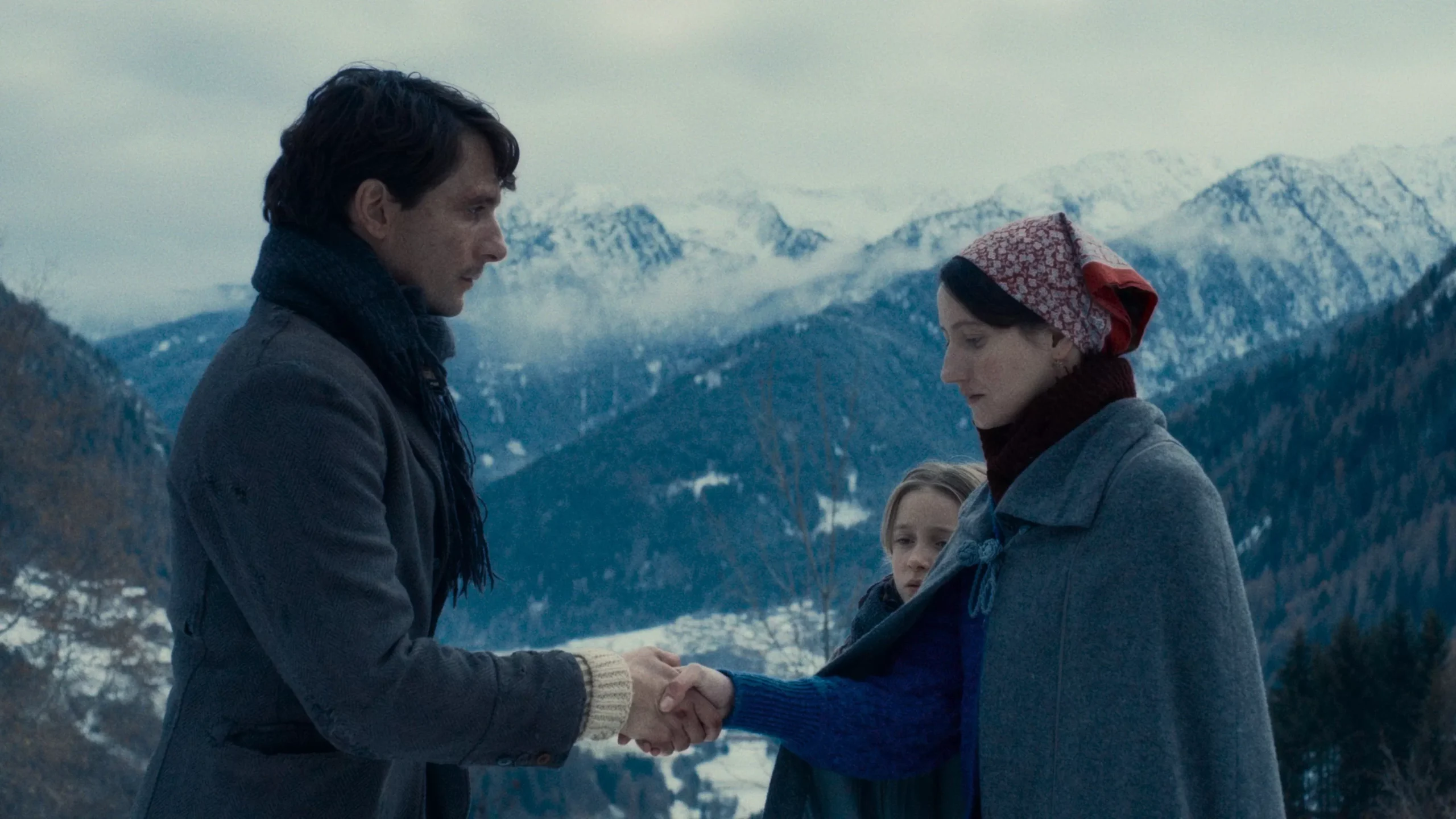
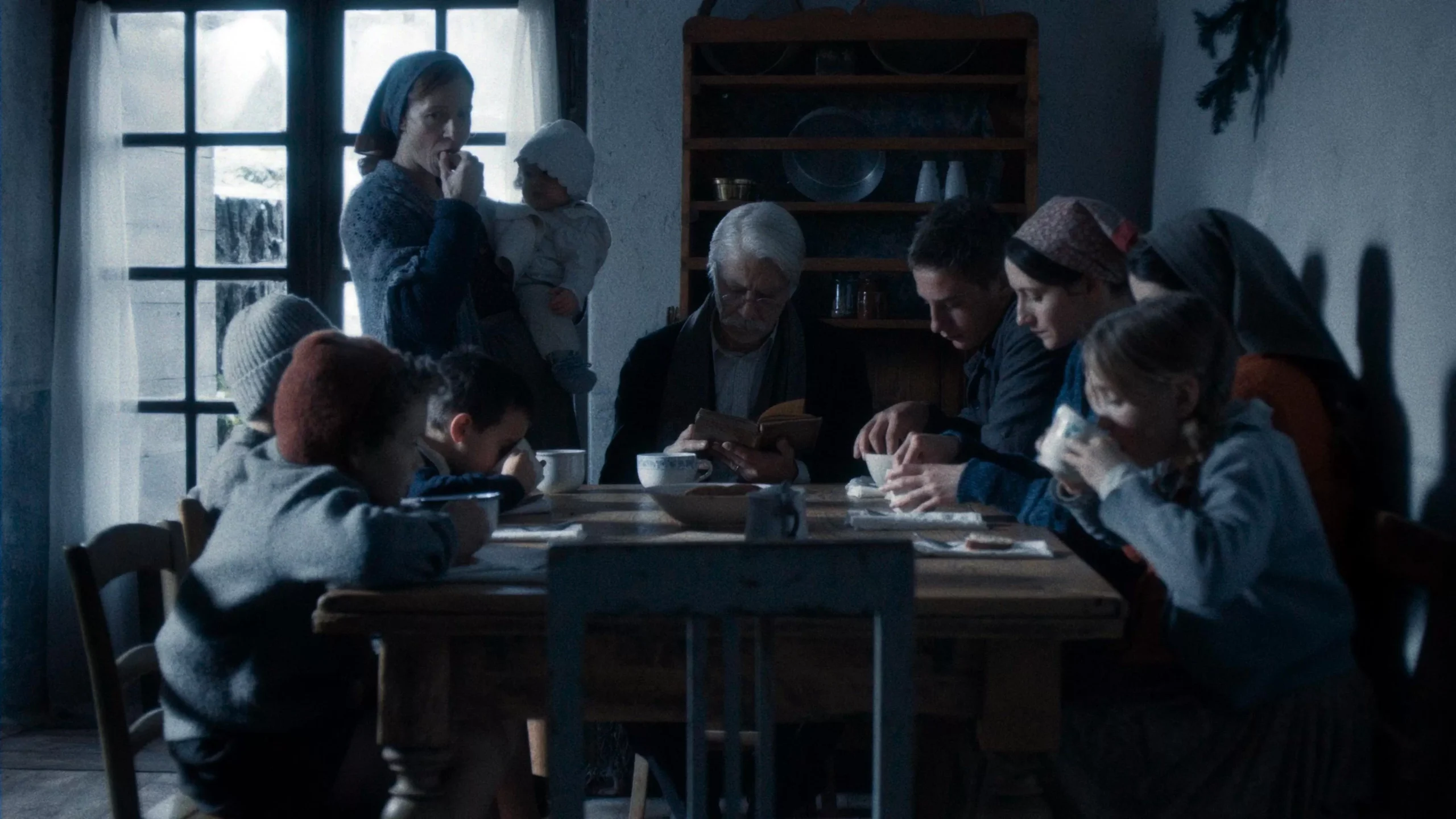
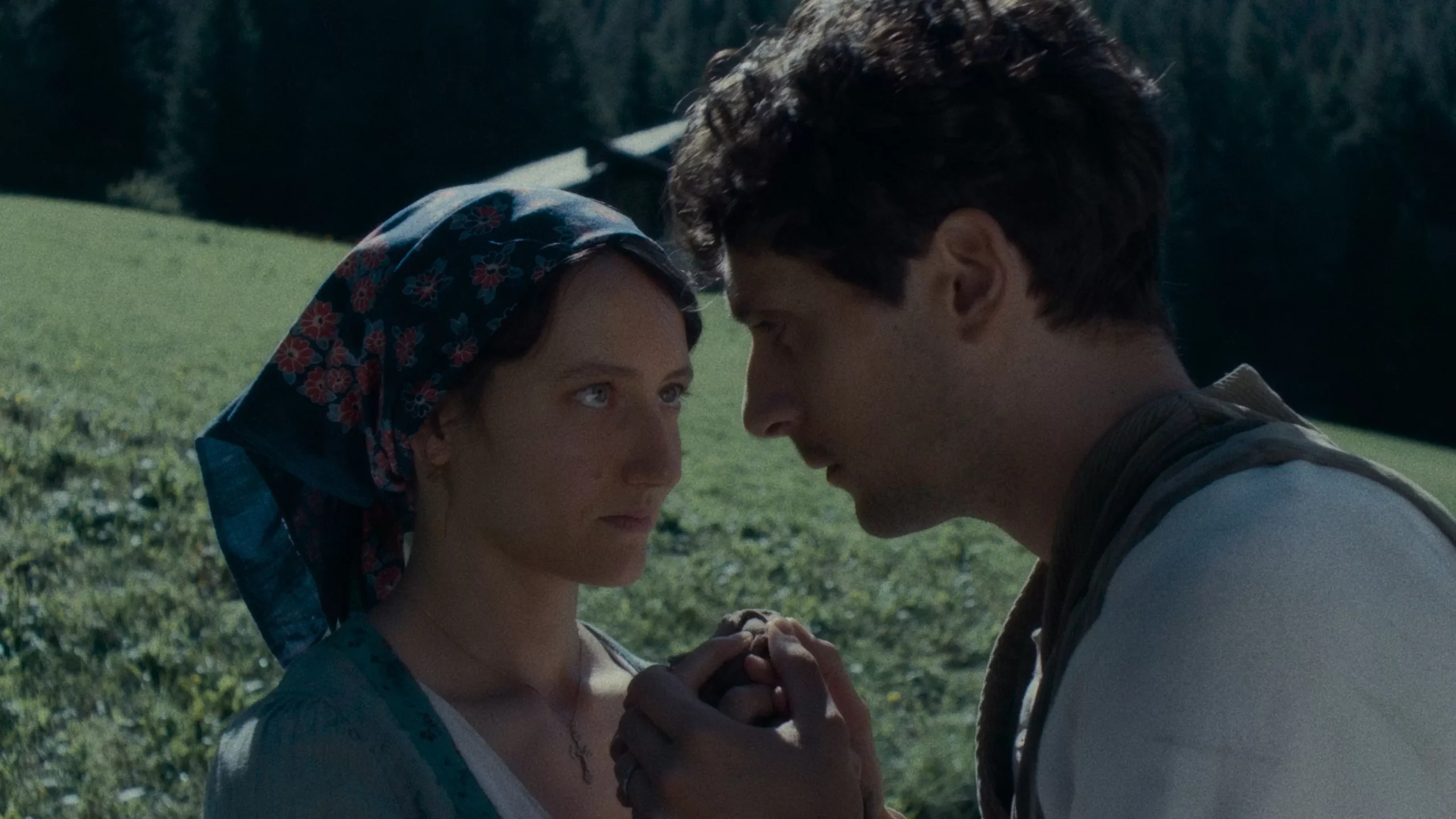
Cultural Significance
As Italy's submission for the Academy Awards, Vermiglio holds a special place in contemporary cinema. Its exploration of family dynamics, wartime struggles, and societal change resonates beyond its historical setting, offering insights into universal human experiences.
My Impressions: Vermiglio is a film that lingers in the mind long after the credits roll. Delpero's direction masterfully balances intimate moments with the grandeur of the Alps, creating a tapestry of visuals and emotions that feel both raw and poetic. The interplay between the setting and characters elevates the story, making it not just a tale of love and survival but also a meditation on the fragility and strength of human connections.
The film's pacing, however, may feel slow to some viewers, particularly those unaccustomed to the deliberate rhythm of Italian neo-realism. Yet, for those willing to immerse themselves, Vermiglio offers a deeply rewarding cinematic experience.
What do you think makes films like Vermiglio stand out in today's cinematic landscape? Share your thoughts on the resurgence of neo-realist storytelling.

